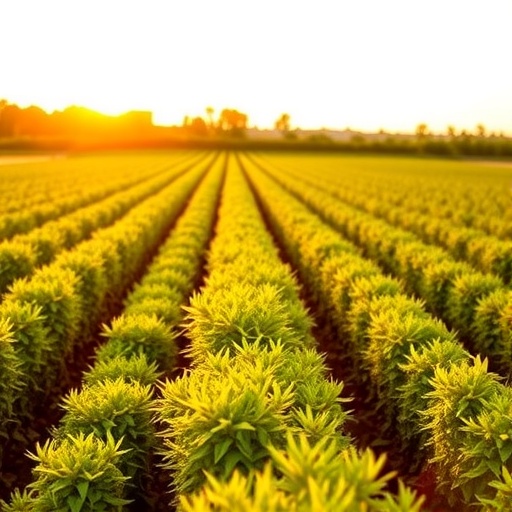Microbial biocontrol represents a paradigm shift in agricultural practices, providing a sustainable alternative to chemical pesticides. This innovative approach relies on natural organisms to suppress plant pathogens, pests, and diseases, ultimately enhancing crop yield and preserving ecosystem integrity. Over the past few decades, research has evolved from in vitro studies to extensive field applications, illustrating the efficacy of these biocontrol agents in real-world scenarios.
One of the most compelling aspects of microbial biocontrol is its mechanistic understanding, which is grounded in the complex interactions between microbial communities and their plant hosts. Beneficial microbes, such as bacteria and fungi, can promote plant health by outcompeting harmful pathogens for resources or by inducing systemic resistance within the plant. These interactions are crucial for developing robust agricultural systems that can withstand environmental stressors and disease pressures.
Recent advancements in genomics and molecular biology have deepened our understanding of these microbial interactions. Researchers have identified specific genes and metabolic pathways that enable biocontrol agents to thrive in various environments. This knowledge opens up new avenues for engineering microbial strains with enhanced biocontrol properties, allowing for tailored solutions to specific agricultural challenges.
Field studies have demonstrated the practical application of microbial biocontrol agents in diverse cropping systems. For instance, biocontrol bacteria like Bacillus subtilis have been shown to effectively suppress fungal pathogens in crops such as tomatoes and cucumbers. These field trials not only validate the laboratory findings but also establish guidelines for the effective integration of microbial agents into existing agricultural frameworks.
Moreover, the role of environmental factors in microbial efficacy cannot be overlooked. Soil composition, moisture levels, and temperature all influence microbial activity and, consequently, the success of biocontrol strategies. Understanding these variables aids in optimizing the application of biocontrol agents, ensuring that they perform at their best under varying conditions.
The economic implications of adopting microbial biocontrol strategies are significant. By reducing reliance on synthetic pesticides, farmers can lower their operational costs while simultaneously minimizing environmental impact. Additionally, the increasing consumer demand for organic produce bolsters the case for integrating microbial solutions into mainstream agriculture, showcasing a market trend that favors sustainable practices.
Innovations in technology, such as bioinformatics and artificial intelligence, further enhance the field of microbial biocontrol. By analyzing vast datasets, researchers can uncover patterns and correlations that inform the development of more effective biocontrol strategies. These technological advancements also facilitate the identification of novel microbial species that hold potential for biocontrol applications.
Nevertheless, challenges remain in the widespread adoption of microbial biocontrol agents. Regulatory hurdles and the need for extensive field trials can slow down the process of bringing these products to market. Collaborative efforts among researchers, agronomists, and industry stakeholders are essential to navigate these challenges and accelerate the integration of microbial biocontrol into agricultural practices.
Education and training programs are vital for equipping farmers with the knowledge necessary to implement microbial biocontrol strategies effectively. Extension services can play a crucial role in disseminating information and best practices, ensuring that farmers are well-informed about the benefits and application techniques of these biocontrol agents.
The potential for microbial biocontrol to contribute to food security is profound. As the global population continues to grow, the demand for sustainable agricultural practices becomes even more urgent. By harnessing the power of beneficial microbes, we can enhance crop resilience, reduce losses due to pests and diseases, and ultimately secure our food supply for future generations.
In conclusion, the journey from mechanistic understanding to real-world application of microbial biocontrol is a testament to the resilience of agricultural research. As scientists continue to unlock the secrets of microbial interactions, we can look forward to a future where agriculture is not only productive but also sustainable and environmentally friendly.
The innovative exploration of microbial biocontrol in agriculture signifies a necessary progression towards the future of farming. It aligns with a broader movement toward sustainability that reflects both ecological and economic benefits. Researchers and farmers alike are encouraged to embrace this biocontrol revolution, leveraging the natural world to protect and nourish our crops. As knowledge expands and technology advances, the possibilities for improving agricultural practices are boundless.
Farmers, researchers, and consumers must work together to champion the integration of microbial biocontrol products into agricultural systems globally. By fostering collaboration across disciplines and industries, we can cultivate an environment where innovation flourishes, and sustainable farming practices become the standard rather than the exception.
With ongoing research and development, microbial biocontrol is primed to transform the agricultural landscape. The journey is just beginning, and we stand on the cusp of a new era in agriculture, one that harnesses the power of nature to foster food security, environmental stewardship, and sustainable economic growth.
In essence, the future of agriculture lies in microbes. As we deepen our understanding of their roles and interactions, the potential for microbial biocontrol to revolutionize farming practices becomes clearer than ever. Together, we can cultivate a sustainable future with healthier crops and a healthier planet.
Subject of Research: Microbial biocontrol in agriculture
Article Title: Microbial biocontrol in agriculture: from mechanistic Understanding to field application
Article References:
Nguyen, HT., Pham, TT., Nguyen, PT. et al. Microbial biocontrol in agriculture: from mechanistic Understanding to field application.
Discov. Plants 2, 334 (2025). https://doi.org/10.1007/s44372-025-00421-y
Image Credits: AI Generated
DOI: https://doi.org/10.1007/s44372-025-00421-y
Keywords: Microbial biocontrol, agriculture, sustainability, plant pathogens, beneficial microbes, economic impact, environmental factors, agricultural practices.
Tags: alternative to chemical pesticidesbeneficial microbes for plant healthcomplex interactions in plant-microbe relationshipsengineering microbial strains for agricultureenhancing crop yield with biocontrolfield applications of biocontrol agentsgenomics in microbial biocontrol researchmicrobial biocontrol in agriculturenatural organisms in crop protectionpreserving ecosystem integrity in farmingsustainable pest management solutionssystemic resistance in plants





